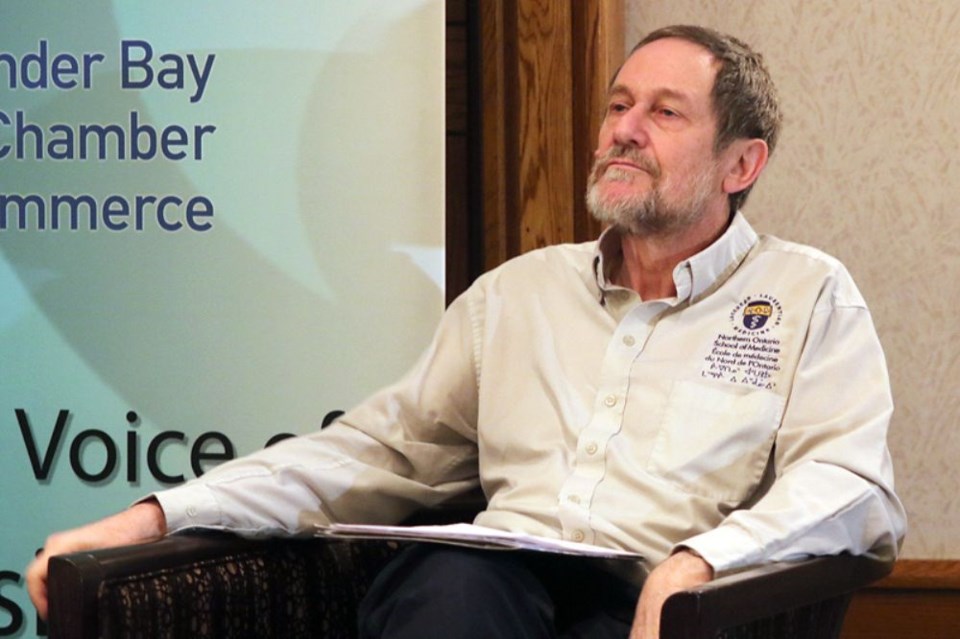A dozen or so years ago, the Northern Ontario School of Medicine was little more than a pipe dream.
The provincial government was adamant it could serve the medical needs of the region through other options.
Convinced otherwise, they decided to open Ontario’s first new medical school in three decades, but at the time, Thunder Bay was on the outside looking in.
With a push from local leaders, including then mayor Ken Boschoff and then Nishanawbe Aski Nation grand chief Stan Beardy, the province relented and approved a dual campus, shared between Sudbury’s Laurentian University and Thunder Bay’s Lakehead University.
It’s been a decade since the school’s first charter class members began their studies and founding dean Roger Strasser said just getting the school open was a challenge.
But the fight was worth it, he said on Friday at a Thunder Bay Chamber of Commerce-sponsored luncheon marking the milestone.
“I believe that after 10 years we can say the school has actually surpassed the expectations of those who were making the case to have the school here in Thunder Bay to serve the people of Northwestern Ontario,” Strasser said.
The goal, all along, was to help increase the number of doctors in the region, where shortages have meant long wait lists for those seeking primary care.
It’s been the source of the school’s success.
“We have more than 90 sites across Northern Ontario where our residents and other learners undertake clinical learning. We’re connected by electronic communications and it’s the community engagement, the active community participations that’s helped make the school a success,” Strasser said.
“We actually selectively recruits that come from Northern Ontario.”
In fact, 92 per cent of NOSM students come from the region, with the other eight per cent coming from smaller, rural and remote communities across Canada.
“It’s a very different class profile from the other medical schools. Our students are learning in the Northern Ontario environment, in the communities of Northern Ontario, with the expectation that after they graduate and after further training that they’ll be providing care in those communities.”
So far, it’s been a success, with 94 per cent of doctors and residents practicing in the North.
Kim Varty is one of those students.
A family physician and graduate of the school’s charter class, Varty spent the past 2.5 years in Atikokan, returning home recently to Thunder Bay.
Unsure where she was going to study medicine while doing her undergraduate work, Varty said NOSM has been an unmitigated success.
“The main part of what NOSM is, it’s health-care providers in the North teaching health-care providers of the North, whether it is physicians or allied help,” she said. “We’re becoming part of these communities from the first day of medical school.”
Sign in or register
- Messages
- Post a Listing
- Your Listings
- Your Profile
- Your Subscriptions
- Your Likes
- Your Business
- Support Local News
- Payment History
Registered Users
Already have an account?
New Users
Create a free account.
